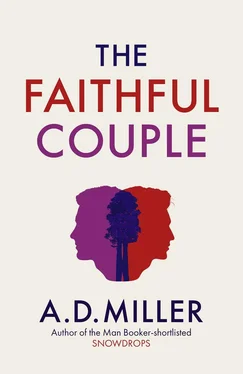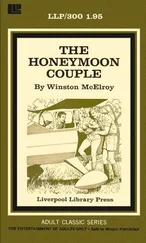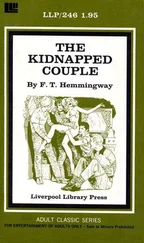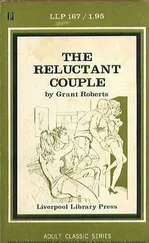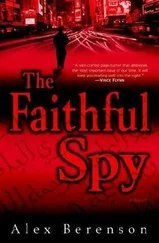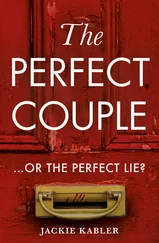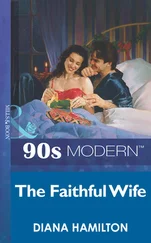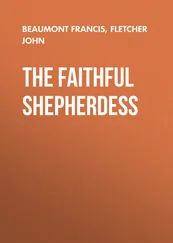A. D. Miller
The Faithful Couple
He wanted to concentrate on the girl, but he found himself glancing at the young man in the corner of the yard. She was telling him about her course at USC, and the details, when he caught them, were reasonably interesting, but there was something about the man that was distracting. Perhaps they had met before, Neil thought, though he couldn’t place him.
‘… and after that I’m hoping for an internship in the Valley. Anyways, what do you do, Neil?’
The baseball cap. It was the baseball cap.
‘Soap,’ Neil said. ‘Soap and shampoo.’
Not just the cap: it was the cap and the shoes together. The guy was wearing suede Timberland boots, notionally designed for walking but not looking as if they had done much. The cap was from San Diego Wild Animal Park and featured several animal silhouettes roaming around the zoo’s logo. The boots belonged to a fashionable adult, well-off and image-conscious; the hat suggested a goofy adolescent.
‘Uh-huh?’
‘I mean, I used to be in soap. I worked for a pharmaceutical company before I came out here. In London. Or, you know, nearby.’
‘You’re in research?’
The man appeared to nod at him.
‘Salesman. I mean, it was a graduate scheme,’ Neil lied, realising that he should try to impress her. His heart had gone out of it. ‘I’m going to look for something else when I get back to London. Or I might, you know, start my own business.’
‘Okay, so you’re an entrepreneur?’
The hat, the boots and the eavesdropping. The man was sitting at a table in the shade. As well as the cap he was wearing green swimming shorts and a beige T-shirt. Sand matted the blondish hairs on his legs, darkening and thickening them. He was pretending to read Time , but Neil could tell that he was listening and observing from behind his sunglasses.
‘Yup. Entrepreneur. Well, you know, that’s the idea. That’s the plan.’
‘What kind of business?’
‘You know, I’m not sure yet. I haven’t really thought it through, to be honest.’
Neil laughed self-deprecatingly, aiming for a raffish nonchalance, but he could tell she wasn’t charmed. He couldn’t see the guy’s eyes but he was definitely watching them. Ordinarily, in Neil’s experience, when two young, unacquainted males appraised each other like this, there was something gladiatorial and menacing in the gaze, and they quickly looked away. On this occasion neither of them did. The man smiled. Neil smiled back.
‘That’s too bad.’
He had seen this girl on the beach the night before, had wanted to try his luck, had tried and failed to engage her around the illicit bonfire some surfers had lit after dark. She wasn’t interested, he had concluded, probably she hadn’t even noticed him. He was pleased to have manoeuvred her into this almost-private conversation, after the barbecue that the hostel had laid on for lunch. She was from Phoenix, but studying in LA, a Masters in Business Development, Neil thought she said; she had come down to San Diego for the beaches, went to Italy last summer, wanted to see more of Europe. She mentioned something about Scotch-Irish ancestry. She was staying elsewhere but had a friend who was working at the hostel (Cary, or possibly Cory, he hadn’t taken in the name). She had an arresting sharp manner and oddly unkempt eyebrows, which contrasted appealingly with her otherwise disciplined appearance. Those ideal teeth.
Now Neil had screwed it up. He and the man in the baseball cap between them.
‘Well,’ the girl said, sensing his distraction and rising, ‘good luck with it all.’
She re-tied her sarong, tilted her sunglasses from the crown of her head to her eyes and walked to the gate that led from the yard to the beach. She moved at a relaxed pace that, Neil figured, was meant to dispel any suggestion of retreat or defeat. The man in the cap watched her go, too. There was no one else in the yard; the two of them followed the girl’s departing curves in what felt to Neil like collusive appreciation.
‘Know what I think?’
He was English, too.
‘Do I want to?’
‘It’s your socks. Definitely the socks.’
Neil instinctively processed the man’s accent for class and geography, as the true-born English must. Received Pronunciation, southern but not London. Posh (those giveaway vowels): not so posh as to be alien, but unmistakably a few rungs above Neil, at the upper, genteel end of the expansive and nuanced middle. They hadn’t met before: that wasn’t what the connection had been.
‘They’re my best pair.’
‘No socks.’ The man removed his sunglasses and put down his magazine. He was handsome in a straightforward, symmetrical way, and slim, with a medium-rare English tan. He was roughly the same age as Neil. ‘Uncool. Not even with your trainers. Trust me, really. They make you look like a kid.’
Neil glanced down at his off-white, tennis-style socks, and at the man’s boots, into which his slender legs slid naked, then felt gulled and foolish for looking.
‘Thanks for the advice,’ he said. ‘Who should I make the cheque out to?’
‘Don’t mention it,’ the man said. ‘This one’s on the house.’ He laughed, loud and confidently, rocking his head back.
Neither of them found a way to graduate from one-upmanship to conversation. The man picked up his magazine, smiled and followed the girl out through the gate, watched by Neil alone.
There was a keg party in the yard that night, with all-you-can-drink beer for the guests and anyone else who wandered in from the beach. Neil came down from his shower just as the biker who supervised the entertainment was hauling in the barrel and pumping apparatus. The sandy breeze blowing in from the ocean civilised the heat. Neil already preferred the evenings in California: he could legitimately cover up the pale, unmuscular body that embarrassed him on the beach in the afternoons. His features suited the half-light: wide-set, almost-black eyes, long, feminine eyelashes, lipstick-pink lips that sometimes appeared theatrical against his luminous skin. He had a large beauty-spot mole on his left cheek, with a matching blemish on his neck. When he swivelled his eyes downwards the mole on his cheek seemed to him to loom blurrily at the edge of his vision.
He stationed himself at the side of the yard and leaned against the wall, his back to the hostel’s door. A voice behind him said, ‘Buy you a drink?’
Neil didn’t turn. ‘It’s your round, Casanova.’
The man approached the barrel and filled two plastic cups with watery American beer. He had ditched the baseball cap; he had shaggy, dirty-blond hair, in the low-rent Romantic poet style that, Neil knew, was fashionable among a certain breed of public schoolboy. They stood side by side against the wall, swigging in unison. The biker produced a microphone and a pair of thigh-high speakers, which he set up on the landward side of the yard, outside some unfortunate guests’ window.
‘Adam.’
‘Neil.’
‘I know.’
They shook hands.
Adam proved to be franker than the types of people Neil was used to, and the casual manner of his openness suggested he would have been the same if they had met at home. This wasn’t intimacy, exactly. No dark secrets were disclosed: Adam didn’t give the impression that he would have many of those, rather a clear run of frictionless and unblemished accomplishments. He was transparent in the manner of someone who doesn’t expect to lose anything by it. He had graduated from university in June — history at Durham, he said — and come out to California before starting work. I wonder who’s paying, Neil thought.
Читать дальше
